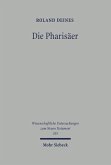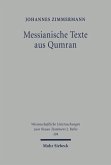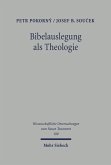Darrell L. Bock examines the historical-cultural background to one of the most significant moments in religious history, the final Jewish examination of Jesus as presented in Mark 14:61-64. He traces the history of interpretive debate surrounding this controversial text and notes that a consensus is emerging that the key statement is the discussion of exaltation using Ps. 110:1 and Dan 7:13. So the author engages in two detailed treatments of the themes of blasphemy and exaltation within Judaism. He works from the Hebrew Scriptures all the way through the rabbinic materials, including both Talmuds and the Midrashim. The study represents the first thorough treatment of blasphemy from this material and examines over 150 texts on this theme. Particular attention is given to whether blasphemy is merely verbal misuse of the divine name or can include the presence of certain statements or acts that are deemed offensive to God's honor. It is noted that these additional categories exist in the culture and are present in a variety of texts that are contemporaneous to the period with examples from Josephus and Philo being predominant. Then the attention turns to the theme of exaltation. A specific concern here is who gets to go directly into God's presence. What do they do? How long are they there? Are there obstacles to their presence? Is there opposition to these kinds of portrayals? Here the key texts include the Exagoge of Moses, the Enoch-Son of Man portrait of 1 Enoch and the Metatron portrait of 3 Enoch. This background is then applied to the study of Mark 14, first as an expression of Mark's message and then to the historical portrait of the scene. Born 1953; 1979 Master of Theology; 1983 Ph.D. in New Testament Studies; 1995-96 Alexander von Humboldt scholar at the University of Tübingen; since 1982 Professor at Dallas Theological Seminary; since 1996 Research Professor of New Testament Studies at Dallas Theological Seminary.
Dieser Download kann aus rechtlichen Gründen nur mit Rechnungsadresse in A, B, BG, CY, CZ, D, DK, EW, E, FIN, F, GR, HR, H, IRL, I, LT, L, LR, M, NL, PL, P, R, S, SLO, SK ausgeliefert werden.









